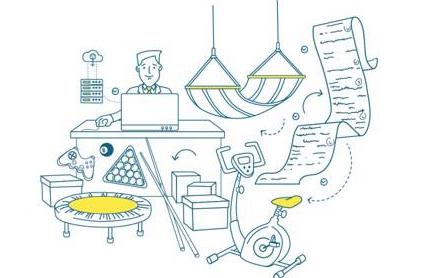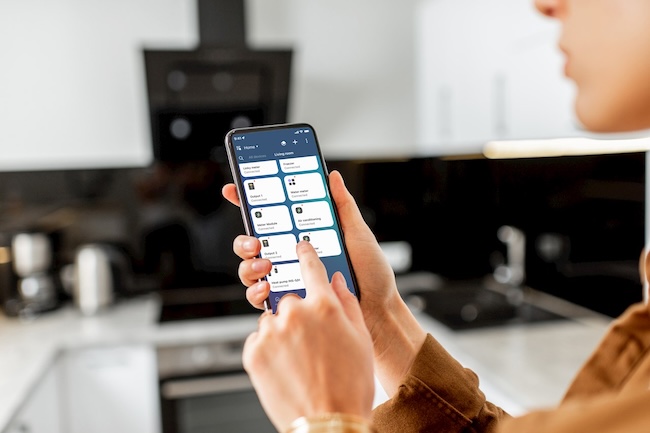Teleworking challenges and solutions

Remote work, also called telework, represent any task that you can perform for your employer (or client) from outside the company premises (e.g., programming, creative design, translation, project management, virtual assistance, writing, digital marketing, any other services using a computer or other device).
Teleworking is mainly practiced by certain sectors of activity or only by certain positions within the organization that can fulfil their duties by working remotely, meaning they have the tools, skills and competencies necessary to have the same efficiency as working at the organization's headquarters.
We mentioned in a previous article that “going to the office is fast becoming a practice of the past for a large percentage of the world's population”. It is interesting that the available statistical data indicate that working remotely or outside the office is becoming normal in many professions, but in some situations the regulation of teleworking can be frustrating and can harm the health of staff… and maybe you’rewondering“WHY?”
In the event of a crisis, it is necessary for a large part of employers and employees to continue their work remotely.
But not everyone has been able to adapt quickly to this process, which requires both a special technology and a specific training for the employee that leads to the reduction of any negative impact on both the employee and the employer.
In the current situation, when we have been constrained by the emergency situation as a result of theCOVID-19 pandemic, many people haveto continue working remotely and THIS MAY NOTBE EASY? We set boundaries, work becomes stressful and we don't always realize WHY.
I would like to point out some of the difficulties we face and probably many - if not almost all - people have been caught on the wrong foot.
-
Our IT skills are not at the level at which we should be relaxed: we have difficulties in adapting to new technologies, we have to change our attitude in communication, we are not used to timing, we are out of time and often the lack of high speed internet connection brings us even more hassle. So, what we thought was EASY, suddenly becomes FRUSTRATING!
-
The tools used or provided by employers are not flexible or capable: often, some used IT tools make certain necessary changes at the interface level (changes that we cannot make ourselves, and require the intervention of IT specialists) or even these IT tools are not what we want to facilitate our interaction with the teams we work with.
-
Data and information security concerns: Yes, this can go directly on you and can be frustrating for those with minimal IT skills. But, if the employer has successfully covered this issue, you are the only one monitoring some aspects communicated by your employer. And you can be relaxed. But if NO, what should we do?
-
Poor communication: we use both verbal and non-verbal communication during the meetings and now we are suddenly put in a position to adapt mentally, emotionally and even verbally, which is not so easy.
-
Negative perception related to the communication from the manager (who is also working remotely): it seems to us that something is not ok and that the manager we are communicating with is not authentic or has a problem. Of course, he/she also has ... he/she is also a human being and he/she is not allowed to adapt quickly to this way of working. Things are not the same as before, when we saw and actively listened to him/her. Many times, we may be distracted by the environment, the tools used or maybe even the lack of a good connection to the technologies used.
-
It is difficult to motivate myself: it is difficult to completely isolate yourself from the familiar environment of the work space, when working remotely, from home. You won't be able to completely ignore the people in the house, right? But you have to adapt and cope with all the requirements (work and family) and to keep somehow a normal work schedule. Now, the normality we were used to is DIFFERENT.
-
I no longer receive TASKS, or I feel that my responsibilities have changed. What happens? I always ask myself this question. Or if I get tasks, I don't get them that often. There is a lack of control so well exercised by managers. But DO I NEED THIS CONTROL? Some of us would answer YES, others would answer NO and others would say ... So good I got rid of ...
-
I feel that I am no longer efficient: for those who have an active behaviour and are accustomed to an active work style, teleworking becomes frustrating because they fail to calibrate their speed to the previous one and feel that they are standing still. Do you identify in this situation? YES, there are many people who need action right now and can find it in another form, but without worrying and inducing a negative impact on others.
-
Lack of social interaction: when you were at the office or in the factory you were surrounded by many people, other than your family; these are your friends or colleagues with whom you often spend 8-10 hours a day. Now they have completely disappeared around you (but only physically) or at least in a significant part of this time. It is frustrating and psychologically stressful, especially for sociable people, but not only. These people are part of your natural environment and suddenly they disappeared from the picture.
And everything leads to SOCIAL ALIENATIONand CUMULATIVE STRESS, which can quickly lead to something other than what we want, namely continuing the activity in the most normal way possible and maintaining the mental health we all need, because EVERYTHING WILL RETURN TO NORMAL SOON.
As I said, teleworking has several positive and negative aspects, as already mentioned in the previous article, but now the NEGATIVEaspects are VERY VISIBLEand impactful, and we must face them, reduce the potential impact and NOT NEGLECT THEM.
How do you do that?
How do you reduce the impact?
-
REFLECT: on yourself and the conditions you have every day. Try to identify what frustrates you and what makes you happy. Intensify the activities you enjoy, without being frustrated that you put some things aside TODAY ... there is also TOMORROW. Anyway, you have nowhere to RUN, at least NOT now. Identify if the IT tools used are the best or if there is a simpler alternative; you can use online training to facilitate the rapid assimilation of the necessary skills. Communicate with IT managers to make sure you are safe from this point of view.
-
BE POSITIVE: think that everything is transient and you will resume the activity in a normal scheme as soon as possible and you will be able to go to coffee again with friends, colleagues and clients.
-
ENJOY, smile, laugh: these are the actions that stimulate the brain in a positive way and strengthen the metabolism.
-
INTERACT: even if you are not physically close to your colleagues, clients and collaborators, you can be close using the most useful and flexible platform at your disposal (both to be close to each other and to socialize, and to be able to do your job). The responsibilities you had did not change at all! They are the same, only the way you complete them is slightly changed and you need to adapt, but the involvement must be at the same level. Try to keep your work efficiency at normal levels as much as possible, and you will find your way.
-
Stay CLOSE to other and have GOOD THOUGHTS for them: think of others too! There are people around you who may not dare to bother ... or they are stuck in the situation. Call them, ask them how they are, encourage them, be close to them. Teleworking does not mean total isolation.
-
DO NOT INTOXICATEyourself with redundant information. Try to stay away from toxic information; they only induce panic.
-
INFORM YOURSELF: when you want conclusive and verified information, access ONLY media platforms that present information correctly and positively. Certainly, you know how to differentiate it!
-
RELAX YOUR MIND AND SOUL: after a day working remotely, no matter how chaotic or productive it was, you need mental relaxation. You can do this through prayer or meditation, by watching a relaxing movie, listening to music or engaging in physical activities.
I hope that we have managed to reveal the hidden secrets of Teleworking, so coveted by many in the times of BUSINESS AS USUAL.
It is important to be aware of our needs as people in any situation and to communicate and adapt quickly. Everything is possible!
Keep close! Stay safe! We are with you!
Article written by Gabriela Fistiș
Contact: [email protected]






